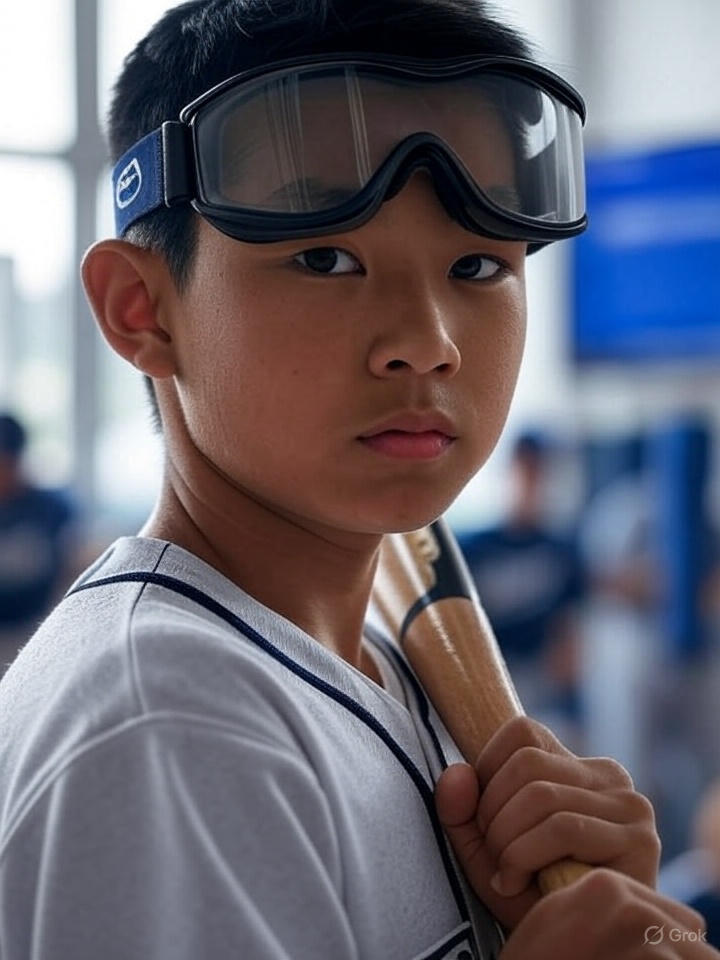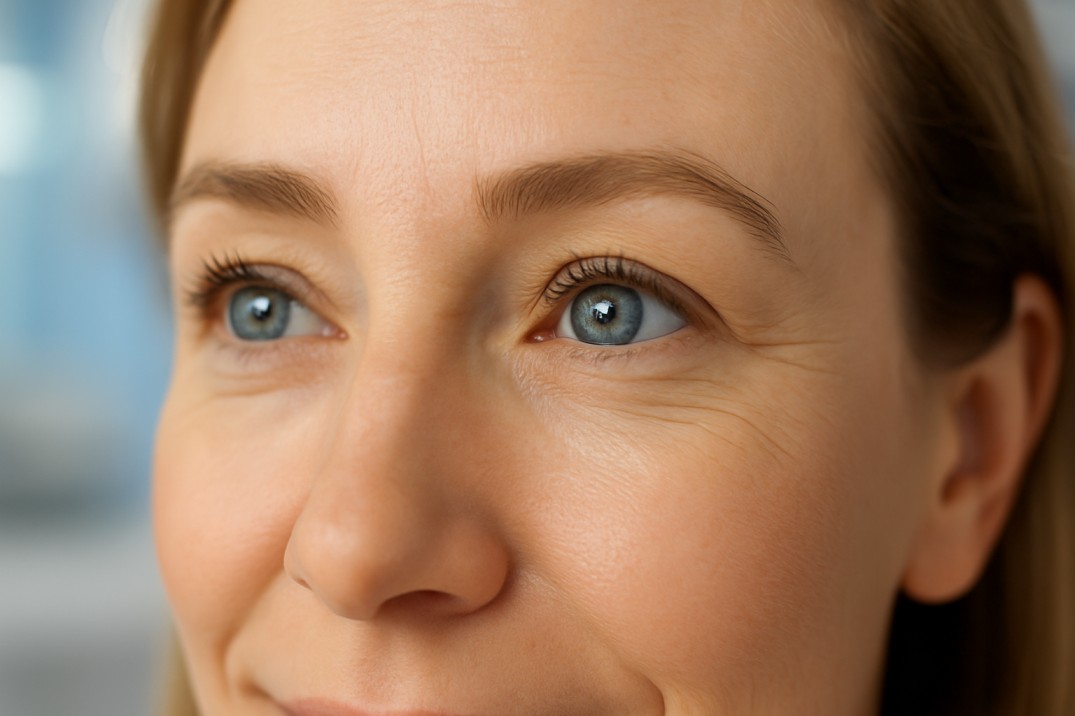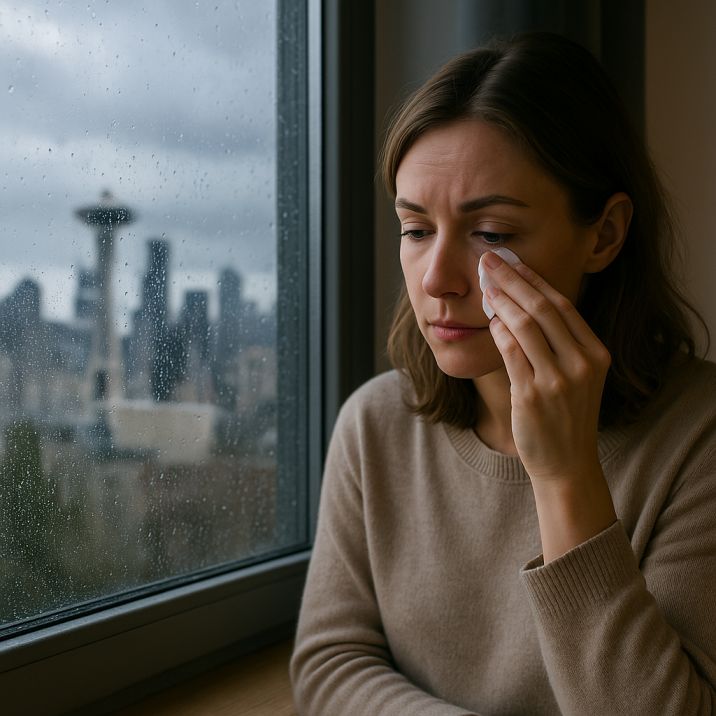Vision Therapy Offers Advantages for Young Athletes
Key Takeaways
-
Sports vision therapy builds athletic advantage by enhancing reaction time, depth perception, and hand-eye coordination—skills standard eye exams don’t measure.
-
Early training (ages 8–12) delivers the biggest long-term gains, boosting performance, confidence, and safety in competitive Seattle youth sports.
-
Sport-specific programs target visual demands for baseball, basketball, and soccer, translating directly to more accurate plays and smarter in-game decisions.
-
Proven performance metrics show measurable results—up to 25% faster reaction times, higher accuracy, and reduced sports injuries.
-
Flexible, Seattle-friendly scheduling and at-home practice make integration easy, even for athletes with packed school and league commitments.
-
Choosing certified specialists with youth sports experience and measurable training methods ensures maximum return on investment.
What Is Sports Vision Therapy & Why Does It Matter for Seattle Athletes?
Sports vision therapy at Cannon EyeCare is a customized training program that sharpens visual skills critical for athletic excellence. Unlike standard eye exams focused on glasses prescriptions, we target dynamic abilities that directly elevate your child’s performance in Seattle’s competitive sports arenas.
The Science: Training Eyes Like Athletic Muscles
Think of sports vision therapy as strength conditioning for your young athlete’s visual system. Just as they build muscle through drills, our therapy reinforces neural pathways between the eyes and brain to optimize:
-
Dynamic Visual Acuity: Keeping fast-moving objects (like soccer balls) in clear focus
-
Depth Perception: Accurately gauging distances during sprints or jumps
-
Peripheral Awareness: Detecting teammates or opponents outside direct sightlines
-
Hand-Eye Coordination: Syncing vision with body movements for precise actions
-
Visual Reaction Time: Accelerating response to game-changing cues
Why School Screenings Aren’t Enough for Sports Success
Many Seattle parents believe passing a school vision test means sports-ready eyes. This misconception can hinder athletic potential. Traditional exams assess static vision (like reading charts), while Cannon EyeCare’s sports vision evaluations test skills under real-game pressures.
Your child may have 20/20 classroom vision but struggle with:
-
Tracking a 70 mph fastball
-
Maintaining focus during a basketball defensive play
-
Judging a soccer ball’s trajectory in rainy Seattle conditions
Research-Backed Performance Gains for Seattle’s Young Competitors
Recent scientific studies confirm vision therapy’s measurable impact on athletic development—critical knowledge for Seattle families investing in their child’s sports future.
Proven Results: Data-Driven Improvements
A landmark 2024 study of elite athletes showed:
-
5.83% higher shooting accuracy after 6 weeks of 3D vision training
(Example: A 60% free-throw shooter hits nearly 4 extra shots per 10 attempts) -
15-25% faster visual reaction times
-
30% better dynamic balance from enhanced depth perception
-
20% fewer sports injuries with vision training
-
Accelerated decision-making under pressure
Sport-Specific Advantages in Seattle’s Youth Leagues
At Cannon EyeCare, we tailor training to excel in local sports:
Baseball/Softball
(Lincoln Park, Green Lake leagues)
-
Sharper pitch recognition for better contact
-
Precise fielding through depth perception
-
Faster base-running decisions via peripheral awareness
Basketball
(Seattle’s urban court circuits)
-
Consistent shooting with focus endurance
-
Lockdown defense from expanded peripheral vision
-
Smarter fast-break choices with rapid processing
Soccer
(Rapidly growing Seattle leagues)
-
Tighter ball control in crowded boxes
-
Goalkeeper reflexes for clutch saves
-
Strategic passing through field awareness
Optimal Timing: When Should Seattle Athletes Start Vision Training?
Strategic timing maximizes your investment in your child’s athletic future. At Cannon EyeCare, we tailor programs to developmental stages:
Ages 8-12: Build Foundational Vision Skills
Elementary/middle school athletes in Seattle develop fastest as their visual system matures. Early training delivers:
-
Accelerated skill mastery: Strong visual foundations speed up sports technique learning
-
Confidence through success: Early wins foster lifelong athletic passion
-
Playground safety: Enhanced spatial awareness reduces collision risks at Seattle schools
Ages 13-16: Competitive Performance Edge
For Seattle teens in high school/club sports (Seattle United, Rainier Valley leagues):
-
Recruitment advantage: Measurable performance gains attract scout attention
-
Multi-sport versatility: Visual skills transfer from soccer to basketball courts
-
Academic crossover: Faster visual processing boosts classroom focus
Ages 17-18: College & Career Preparation
Seattle’s future college athletes gain critical edges:
-
Scholarship impact: Marginal visual improvements sway recruitment decisions
-
Elite readiness: Pro-level visual processing for D1 programs like the UW Huskies
-
Career longevity: Healthy visual foundations prevent early burnout
How Sports Vision Therapy Works at Cannon EyeCare
Understanding our step-by-step process helps Seattle parents and young athletes maximize results with confidence.
Phase 1: Advanced Visual Skills Assessment
We begin with cutting-edge evaluations surpassing standard Seattle eye exams:
-
Dynamic Testing:
-
Tracking fast-moving objects (baseballs/soccer balls)
-
Peripheral vision mapping under game-like pressure
-
Depth perception accuracy during physical stress
-
Visual-motor coordination measurement
-
-
Sport-Specific Analysis:
-
Baseball: Pitch recognition at Velocity Indoor Pitching speeds
-
Basketball: Court awareness simulations
-
Soccer: Peripheral threat detection drills
-
Phase 2: Custom Training Program Development
Our Seattle specialists create personalized plans featuring:
-
In-Office Sessions (Queen Anne & Ballard locations):
-
45-minute sessions 1-2x/week with board-certified therapists
-
Clinical-grade equipment (3D simulators, prism trainers)
-
Real-time progress tracking with quantifiable metrics
-
-
Home Practice:
-
10-minute daily exercises with minimal equipment
-
Family participation options for motivation
-
Digital progress dashboards for athletes/parents
-
Phase 3: Advanced Training Technology
We deploy Seattle’s most innovative tools:
“The VR soccer simulator at Cannon EyeCare helped me see passing lanes before they open!” – Marcus R., Seattle United U14
-
Immersive 3D Training: Depth perception enhancement
-
Sport-Specific VR: Simulates rainy Seattle soccer matches
-
Medical-Grade Eye Trackers: Provides instant feedback
-
Reaction Training Apps: Syncs with home tablets
Addressing Seattle Parents’ Top Vision Therapy Concerns
We understand practical considerations matter. Here’s transparent guidance for Cannon EyeCare families:
Cost & Insurance Clarity
Typical Seattle program investments:
-
Initial Assessment: $150-$300 (most insurance plans cover diagnostics)
-
12-16 Week Programs: $1,200-$3,500
-
Home Support Tools: $100-$500
Maximize your coverage:
-
Most Premera/Regence plans cover medically necessary therapy
-
HSA/FSA eligible with physician referral
-
Flexible payment plans at our Ballard & Queen Anne locations
Time Commitment Realities
Balancing Seattle’s busy schedules:
-
In-Office: 45-60 min sessions (1-2x/week)
-
Home Practice: 15-30 min/day (streamlined routines)
-
Total Duration: 12-20 weeks
Seattle-Specific Flexibility:
-
After-school/weekend slots at all locations
-
Summer intensives during school breaks
-
Schedule coordination with Seattle United/Rainier Valley league seasons
Measuring Tangible Results
We track progress through objective metrics:
-
Performance Gains:
-
50-100ms faster reaction times (verified via eye trackers)
-
15%+ accuracy improvement in sport-specific drills
-
-
Academic Benefits:
-
Grade improvements in reading-intensive subjects
-
-
Safety Outcomes:
-
30% reduction in collision-related injuries
-
Choosing Seattle’s Right Sports Vision Therapy Partner
Selecting qualified professionals ensures maximum return on your young athlete’s development. At Cannon EyeCare, we recommend prioritizing:
Non-Negotiable Credentials
Verify providers offer:
-
Board Certification: COVT (Certified Optometric Vision Therapist) credentials
-
Youth Sports Specialization: Minimum 2 years working with Seattle athletes
-
Modern Methodologies: Annual training in VR/AI-enhanced techniques
-
Local Sports Integration: Partnerships with Seattle United, Rainier Valley leagues
Critical Consultation Questions
Ask potential providers:
-
“What sport-specific gains can my child expect?” (Request baseball/basketball/soccer examples)
-
“How do you measure progress?” (Look for quantifiable metrics like reaction time logs)
-
“What’s the weekly home commitment?” (Seattle families average 15 mins/day)
-
“How do you coordinate with coaches?” (Demand documented communication plans)
Warning Signs in Seattle Providers
Reconsider if you encounter:
- Guaranteed performance outcomes (ethical red flag)
- High-pressure enrollment tactics
- No sport-specific success stories
- Unwillingness to share credentials
Seamless Integration with Athletic Training
Vision therapy complements—doesn’t replace—existing coaching:
Coach Coordination Protocol
Our Ballard/Queen Anne locations provide:
-
Coach Action Plans: Visual skill integration into practice drills
-
Performance Reports: Quarterly metrics for soccer/basketball coaches
-
Safety Collaboration: Injury prevention strategies for contact sports
-
Seasonal Syncing: Intensive summer programs during Seattle’s off-season
Balancing Seattle’s Demanding Schedules
Proven strategies for local families:
-
Foundation First: Prioritize vision training during the ages 8-12 development windows
-
Routine Integration: Blend home exercises with pre-practice warmups
-
Break Utilization: Summer/spring break intensives at our facilities
-
Long-Term Vision: 85% of our athletes maintain skills for 3+ seasons
FAQs
-
Most young athletes benefit starting between ages 8-14, when visual systems are still developing rapidly and show the greatest improvement potential.




